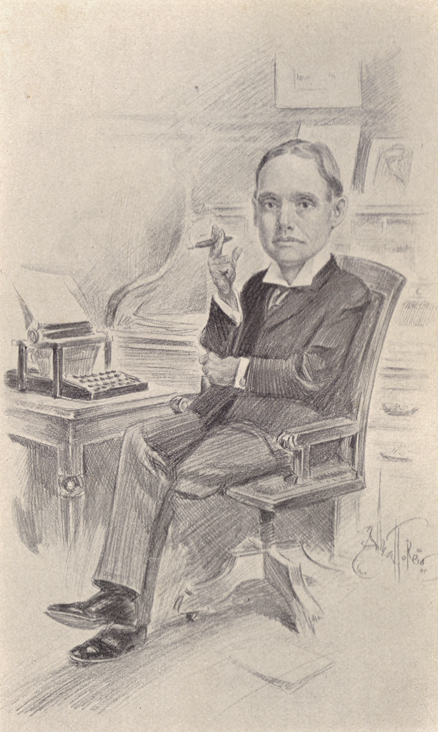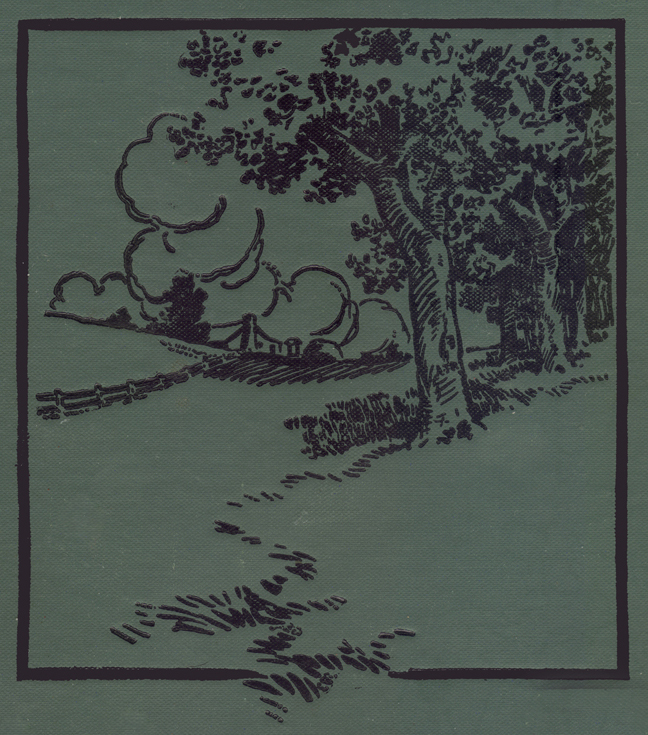
From At the Grass Roots, Comprising “The Christmas of 1883,” and Other Vagrant Sketches, by Elmer House (Dodd Gaston), with Cover Design and Frontispiece by Albert T. Reid, Topeka: Monotyped by Crane & Company, 1905; pp. 37-40.

Morey Aldrich was the neighborhood fiddler. Aldrich’s orchestra, which consisted of a violin and a “bull” fiddle, played at nearly all of the big dances in the country round about. One could hire Aldrich’s orchestra for $3, and in addition to furnishing the music Aldrich “called off” the figures in the square dances without extra charge. Other fiddlers could be hired more cheaply. Music might be had for as little as $1.50 an evening, but Aldrich was considered the best of the lot and his orchestra played for all of the swell dances.
I have referred to Aldrich as a fiddler, the title by which he was known in the neighborhood. I did not know then, but I know now, that the man was an artist, a violinist of rare skill and wonderful temperament. I had been raised in the Methodist church, and about the only 38 music with which I was familiar were the long-meter hymns of that sect. And yet I can still real my surging emotion and the tugging at my heartstrings which inevitably occurred when Aldrich, on the occasion of a social evening, discarded dance music and played what he chose. The names of Schubert, Strauss and others of the masters whose music Aldrich played when he sought relaxation meant nothing to me then. I only knew they were the signal for the onslaught of a torrent of varying moods and emotions. But I know now that I was listening to a master of the bow.
Aldrich is long since dead. Even then his hair and beard were white, and he must have been a long way down the hill on the other side of fifty. He was a Massachusetts man, and I have often wondered what strange upheaval uprooted him from his native soil and set him down on a Kansas prairie, he farmed a little in a dilettante sort of 39 way, and had a few pupils in music — some on the organ, a few on the violin, and occasionally one in vocal methods. But there was a great deal stronger demand for bread and butter in Kansas during those years than there was for music, and the real business of his life was playing for country dances.
The fiddler’s farming was the joke of the community. He had a strange antipathy for, or fear of, a horse, and would not have one on his farm. He put in and tended his crops with a hoe and gathered them in a wheelbarrow. He would not even ride behind a horse if he could help it, and invariably walked to the dances at which he played. Some of them were held as far away as ten miles from his home, and one often saw him setting out as early as three o’clock in the afternoon for the dance at which he was to play that night. After the dance he walked back home again, although at many of the festal affairs in which he 40 participated the merrymaking ended coincident with the rising sun.
Aldrich’s one weakness, a not uncommon one, by the way, was his belief that he could sing. He knew music thoroughly and could play seven or eight different instruments, but he had not the slightest suggestion of voice considered from the standpoint of either quantity or quality. But he always sang at public entertainments, and invariably chose the “Marseillaise” as his selection. In the five or six years I knew him intimately I heard him sing the “Marseillaise” not fewer than thirty times.
His was one of the strange, unusual types in the incongruous mass which peopled Kansas in its earlier days. A gentle, kindly man with the soul of an artist and the touch of a master, his later years were as utterly lost as is the novice at sea in an open boat.
